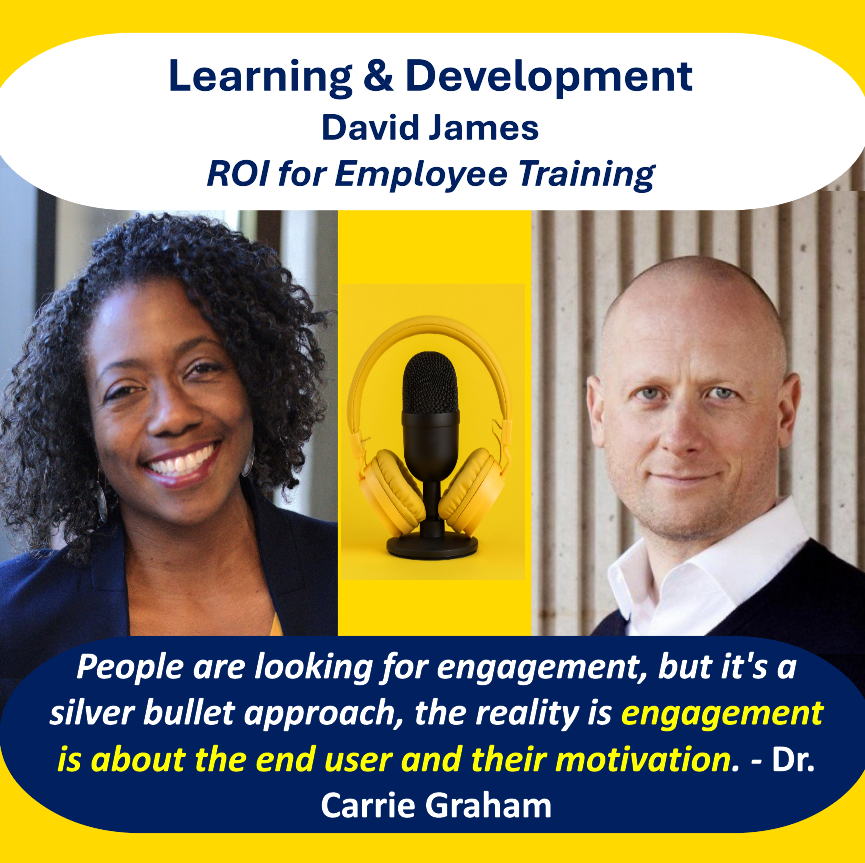
In this episode of the Learning and Development Podcast, host David James interviews Dr. Carrie Graham about the critical importance of adult learning theory in corporate training and development. Dr. Graham explains how adult learning (andragogy) differs fundamentally from childhood education (pedagogy), emphasizing that adults bring rich life experiences that must be acknowledged and leveraged in training programs. The conversation explores common mistakes in L&D, particularly the failure to understand who learners are as individuals rather than just their job roles or demographics. Dr. Graham shares her pivotal experience witnessing disengaged employees during mandatory sexual harassment training while the organization was simultaneously facing litigation for the same issue, highlighting the costly consequences of ineffective training. The discussion covers how adult learning theory should influence analysis, design, implementation, and evaluation of training programs, with emphasis on creating realistic problem-solving opportunities and meaningful engagement strategies. They address the challenges of e-learning and virtual training, noting that despite robust technical design, most online learning fails because it lacks understanding of learner motivations and experiences. The conversation concludes with practical advice for incorporating adult learning principles, starting with understanding your audience as learners and building content that references their experiences while providing opportunities for skill application. Dr. Graham advocates for moving beyond "silver bullet" solutions to focus on engagement, retention, and application as the three core outcomes of effective training and development programs.
Listen Here > https://open.spotify.com/episode/2QqwmeXaHpwgDgsgrrZNu0?si=95385b854ba54ad5
Dr. Graham emphasizes that effective training and development must begin with understanding who learners are as individuals with rich life experiences, rather than treating them as generic recipients of content based solely on their job roles. She advocates for moving beyond the search for "silver bullet" solutions in L&D to focus on the fundamental principles of adult learning theory: meaningful engagement, information retention, and practical skill application that directly connects to learners' real-world work situations.
Listen Here > https://open.spotify.com/episode/2QqwmeXaHpwgDgsgrrZNu0?si=95385b854ba54ad5
Read > Adult Learning Potential: A Deep Dive Into Theory and Practice
Subscribe > C.A.L.M. Email for weekly industry insights
Get practical tools, strategies, and resources to design and deliver impactful training programs — right in your inbox.